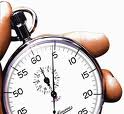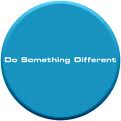I just got an email from someone that said that she’d hit a plateau in fitness and fat loss and wanted to know how to break through.
First of all, I want to suggest that everyone use this forum, the blog, to post your questions and comments. We are a community and we can learn from each other. There are NO dumb questions and we all can benefit from what is said. I get a better handle on what your needs are, like this one for example, so I know how to help you more effectively. And you get your specific questions answered.
Onto this topic…
 Your body is an amazing machine. It’s designed so that what ever you throw at it, it will learn to handle the load. For example, if you start out with 5 lb dumb bells you may get crippled sore, but after a bit of time and training, you’ll be throwing those dumb bells around like they were nothing at all. This is your body’s way of adapting.
Your body is an amazing machine. It’s designed so that what ever you throw at it, it will learn to handle the load. For example, if you start out with 5 lb dumb bells you may get crippled sore, but after a bit of time and training, you’ll be throwing those dumb bells around like they were nothing at all. This is your body’s way of adapting.
You can’t keep doing the same thing and expect your body to improve. It will improve in the beginning, but once your body steps up to the challenge, it will stay there until you challenge it further. This is the principle behind progressive resistance. This principal is defined as the gradual increase of stress placed on the body. Whether you’re weight training in a gym, or doing resistance training with your own body weight, or running up a hill, you need to increase the intensity as you continue to train. Your body is constantly adapting to training stimuli; if you don’t offer more challenge to your routine, you will only maintain your fitness level and not improve in any of the fitness parameters. Or, you will hit a plateau.
This is why I think so many find the weight room unsatisfying. You may start off with a bang and notice some changes in your body, but then it all comes to a grinding halt. The majority of people reach a certain fitness level and then plateau. Studies show that increases in muscular strength are most prevalent in the first four to eight weeks of training specifically for strength. After these early stages of training, strength gains then taper off.
It could it be that strength gains (and other fitness benefits) tend to stagnate or decline over the long run due to a lack of variation and imagination in the routine followed. The bottom line is that people get lazy and just don’t step up their programs. Over time, many people keep doing the same old routine, simply going through the motions, doing the same thing, in the same amount of time, day in and day out. This becomes a maintenance routine, not enhancing existing your fitness level or fat loss effort.
So, stop doing the same thing! Change your program up, never do the same workout twice. Honestly, this is why ladies have the best luck with my program and boot camps because you never repeat the same workout in the month long program.
 Another great way to shake up a routine is to attempt to maintain your workout volume, but to decrease overall workout time. This can be done simply by decreasing rest. A workout allowing for thirty seconds rest between sets will feel much different to one that allows for two minutes between sets. Different body systems will be taxed with varying amounts of rest. A workout with lighter loads and short rest times will tax the cardiovascular system, increase the body’s ability to cope with lactic-acid build up, and increase muscular endurance. A workout with longer rests and heavier loads will focus more on muscular strength development and muscular hypertrophy.
Another great way to shake up a routine is to attempt to maintain your workout volume, but to decrease overall workout time. This can be done simply by decreasing rest. A workout allowing for thirty seconds rest between sets will feel much different to one that allows for two minutes between sets. Different body systems will be taxed with varying amounts of rest. A workout with lighter loads and short rest times will tax the cardiovascular system, increase the body’s ability to cope with lactic-acid build up, and increase muscular endurance. A workout with longer rests and heavier loads will focus more on muscular strength development and muscular hypertrophy.
 Then again, you may need to do something completely different for your metabolism to come alive so you’ll break your plateau. Adding variety to your workout is the key. If all you do is run, then you need to add some resistance training. If all you do is lift weights, you need to add some high intensity interval training.
Then again, you may need to do something completely different for your metabolism to come alive so you’ll break your plateau. Adding variety to your workout is the key. If all you do is run, then you need to add some resistance training. If all you do is lift weights, you need to add some high intensity interval training.
And speaking of interval training, you need HIIT (high intensity interval training) with the focus on the high intensity. You need to get a sweat going. If you can walk away from your workout without breaking a sweat or the need for a rest, then you know you’re not working hard enough.
 What are eating? You can never out train poor nutrition. Keep a close eye on what you put in your mouth. I am NOT saying reduce your calories, but I am suggesting that you look at the quality of food that you’re eating. Read labels, particularly on any new food items you’ve added to your diet as you may be surprised at the nutritional breakdown on seemingly healthy foods. And, check your portion sizes to ensure that you’re not over doing it. Do NOT starve yourself, but be aware!
What are eating? You can never out train poor nutrition. Keep a close eye on what you put in your mouth. I am NOT saying reduce your calories, but I am suggesting that you look at the quality of food that you’re eating. Read labels, particularly on any new food items you’ve added to your diet as you may be surprised at the nutritional breakdown on seemingly healthy foods. And, check your portion sizes to ensure that you’re not over doing it. Do NOT starve yourself, but be aware!
Basically, if you want results that you’ve never had before, you need to do what you’ve never done. If you’re going through the motions, then don’t expect stellar results. You need to continually set the bar a bit higher each day to challenge your body and push it to a new you.




